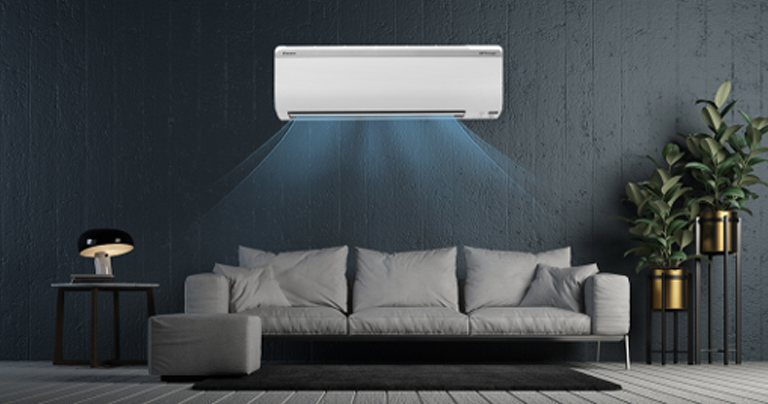
If you are looking to buy an AC, you are most likely to come across two major choices – normal AC and inverter AC. A majority of people get confused between these two options and try to find which is better for them. Whether you choose a window AC, a split one, or any other AC type, one of the crucial differentiations is their inverter mechanism or non-inverter mechanism.
Since air conditioners are known to be high-energy consumers, the users may find a major difference in this aspect of air conditioners. Understanding this can be of immense help for buyers in deciding the best for them.
So, here is a guide that would help you understand which is better among them.
Inverter vs. Non-inverter AC
The functioning of a non-inverter AC is quite simple. In this type of AC, the compressor motor turns on to reach the set thermostat level and turns off after reaching that level. This continuous on-and-off mechanism of the compressor motor makes it consume more power than an inverter AC.
On the other hand, an inverter AC contains a variable-speed compressor motor that adjusts its speed to maintain a constant temperature in the room. This results in better energy efficiency.
Now, let’s take a deeper look at this below.
1. Energy Efficiency
In terms of energy efficiency, inverter ACs tend to have an upper edge over non-inverter ACs. This is because of their variable speed compressor which adjusts its speed to maintain the indoor temperature. This prevents the recurrent on and off of the compressor motor which tends to consume more power.
If we talk about non-inverter ACs, these ACs consume a lot of power due to their fixed-speed compressor motor which works at constant speed and switches on and off at various intervals. This mechanism results in higher power consumption.
2. Durability
Considering the point that inverter ACs are not based on an on-off working mechanism, they tend to be more efficient than their counterparts. Though most buyers may not pay heed to this aspect, this ultimately increases the durability of the air conditioner.
3. Temperature Control
For those who don’t want their rooms to get excessively cold or hot, inverter air conditioners are the best choice. This is due to the fact that they are better when it comes to maintaining a consistent temperature given the precise needs of the users. They have better temperature-adjusting capability.
4. Initial Costs
Inverter ACs usually carry higher costs than normal ACs. However, due to their higher energy-saving capabilities, they enable long-term saving which helps in the compensation of their higher initial cost. This makes them a more value-for-money product.
Non-inverter ACs are generally cheaper than inverter ACs. However, their heavy electricity consumption makes them an expensive choice over a period of time.
The Conclusion
So, now you have a better idea about the differences between inverter ACs and non-inverter ACs. If you want to invest in the best quality inverter AC, consider Daikin inverter ACs that present a perfect mix of great features, amazing cooling performance, and exceptional power savings. In addition, Daikin air conditioners come with 10 10-year warranty on the inverter compressor which means you get the ultimate peace of mind. Available in different sizes, the brand’s ACs come with some unique features that make them an excellence choice.

